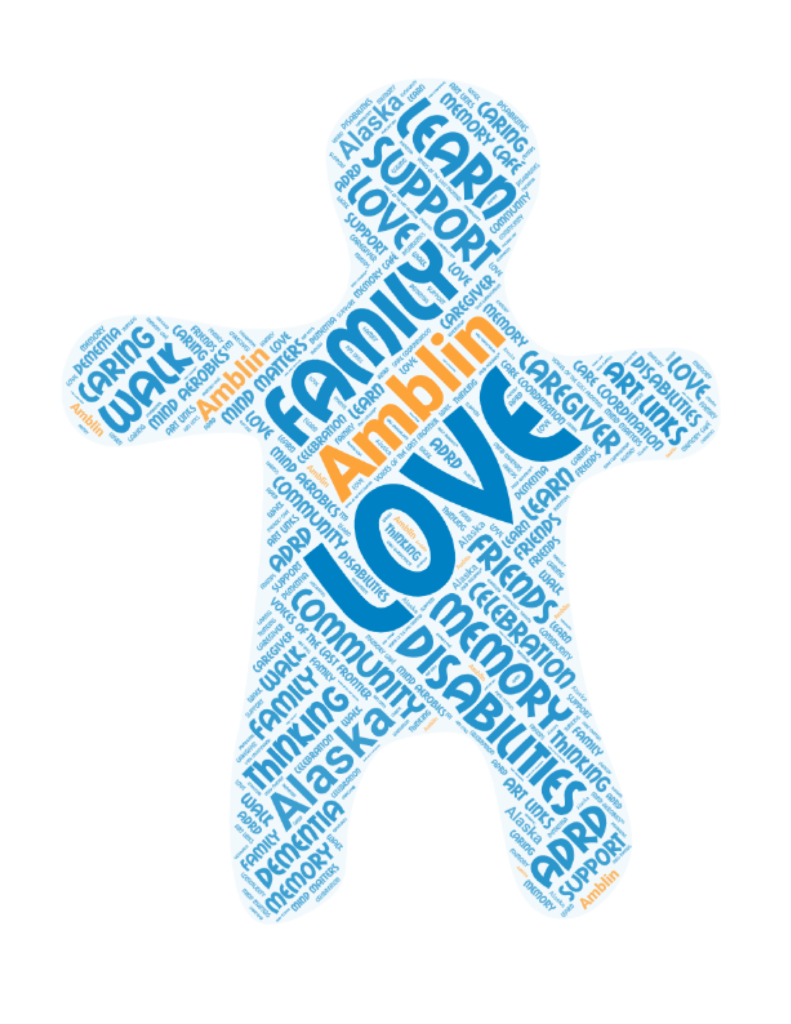Republished from Reitman Centre Team — originally published Dec 17, 2019

As a Psychologist working with caregivers of people diagnosed with dementia, I often hear from my clients that they feel isolated and alone with their responsibilities. The stigma around dementia is woven into their experiences. I changed some details of the stories I describe here to protect the privacy of the people involved, but many caregivers share these issues.
What is the stigma of dementia?
In a general sense, stigma is something that sets a person apart from others, something that takes away from one’s character or reputation. Stigma carries with it disgrace and humiliation. Stigma around dementia refers to the concept that dementia diminishes someone or makes them worth less than others. Stigma implies that cognitive functioning defines a person’s value. Even the word “demented” is an insult in common use. Some cultures see dementia as contagious. When someone has dementia, the disease becomes the family’s shame, and they keep it hidden.
Small changes can make a real difference
We all have our own biases and vulnerabilities. Research has shown that stigma is best challenged through understanding and interaction. Instead of trying to end stigma, it is much more helpful to talk about realistic small changes. We want to connect with the person with dementia as an individual, rather than their symptoms.
Stigma is one of the factors that leads to caregiver isolation. For example, for the past few years a client of mine has been caring for his wife who has Alzheimer’s dementia. Several years ago, a friend told him that she would not visit because she “didn’t like sick people.” A few years have passed since that conversation, and my client continues to carry feelings of rejection and shame. Even if his friend did not mean to hurt him, her comment sent the message that someone who is sick with dementia isn’t worth spending time with, and my client experienced stigma by association.
Shame and fear of dementia – real costs
We are talking about a complex issue with serious emotional and practical implications. Stigma impacts how people with dementia think about themselves, and what they expect from others in their lives. Sometimes people avoid seeing their doctor because of the stigma associated with a diagnosis of cognitive impairment. After a diagnosis of dementia people often feel ashamed of the label, because they expect others to treat them as though they have a shameful illness. Because dementia affects a person’s ability to communicate and engage with people, they might worry that they seem “stupid” or “incapable.” I have a client whose husband did not tell his partners at his business firm that he was getting confused. He made a crucial and costly mistake and he was forced to retire. Informing his business partners about changes to health that would impact the business was in the partnership agreement. Ironically, if he had felt safe to share his diagnosis, he could have left the business with his reputation intact.
I have heard many times from my clients how frustrating it is that people talk to them and ignore their family member with dementia.
In reality, people with mild and moderate dementia can continue to live full and productive lives if they make appropriate modifications. Unfortunately, people with dementia are often defined by their symptoms. Dementia symptoms are not necessarily expressed the same way in all people, and symptoms change over time in a person with dementia. Variability adds to misunderstandings about dementia. I hear all the time how frustrating it can be when someone’s family member with dementia cannot remember the answer to a question from 5 minutes ago but can remember the details of a vacation they took as a child. Sometimes people question whether their family member really has dementia because they are able to remember the past. In fact, this difference in recall happens because of differences in the way the brain stores memories. With dementia, the brain has difficulty storing new information. Accessing memories about the past is easier because the connections between brain cells are stronger.
Assumptions are a form of stigma. When someone with dementia has a lapse of attention during a conversation, people might assume that they are unable to remember anything or understand complex ideas. They might be left out of other discussions, even about things that are important to them. I often hear from my clients how frustrating it is that people talk to them and ignore their family member with dementia.
Stigma by association – impacts caregivers too
I mentioned a caregiver whose friend wouldn’t come to visit him and his wife. Not only was it a rejection of the woman with dementia, it was also a rejection of her husband. This is stigma by association. Caregivers of people with dementia are also affected by stigma. It is easy enough to see how stigma leads to isolation, which is a strong contributor to caregiver burden.
Caregiving is hard enough without also having to deal with feelings of shame. One woman told me that she and her husband had been “uninvited” from a holiday dinner because the host felt it was too hard to accommodate someone who had dementia. Not only did my client feel ashamed but she also felt angry and protective of her husband. And unfortunately, evidence shows that the perception of stigma increases caregiver burden.
Who to tell about the diagnosis is a dilemma for caregivers, because revealing the diagnosis can increase stigma. My clients tell me that they feel conflicted about sharing this information with friends or family. On the one hand, they crave the emotional and practical support that comes from having other people aware of the challenges. On the other hand, caregivers want to preserve their family member’s dignity and privacy. I worked with one woman who had many compassionate people in her life who knew nothing about how much she was suffering. She was so good at hiding the extent of her husband’s impairments that no one realized that he needed any help from her.
It is hard for caregivers to avoid the trap of all-or-nothing thinking when it comes to revealing the diagnosis, while actually telling a few valued people may be enough for a sense of connection. That phrase “at times like these you really learn who your friends are” holds true for dementia. People tell me that it is surprising who lets them down, and also how support sometimes comes from surprising places.
In Part II of our blog about stigma and dementia, we will continue to explore how we can make small changes to counter stigma to be helpful to people with dementia and their families.
Points to Consider from Part I:
1. Stigma influences how a person with dementia thinks about themselves
Impact:
- People avoid seeing their doctor for assessment
- People might feel ashamed of the diagnosis and hide it
- People with dementia expect others to treat them differently
2. Assumptions are a form of stigma
Impact:
- Assumptions can be made that symptoms of dementia are always the same, but they actually can be different from person to person, or even for one person depending on the situation
- Lapses in attention or memory might be assumed to mean an inability to understand or remember anything
- People speak only to the caregiver and ignore the person with dementia
3. Stigma by association
Impact:
- Rejection of the person with dementia can mean rejection of their caregiver
- Caregivers are reluctant to reach out when they need support
- Sometimes telling just a few valued people is enough



 Make a Payment
Make a Payment



